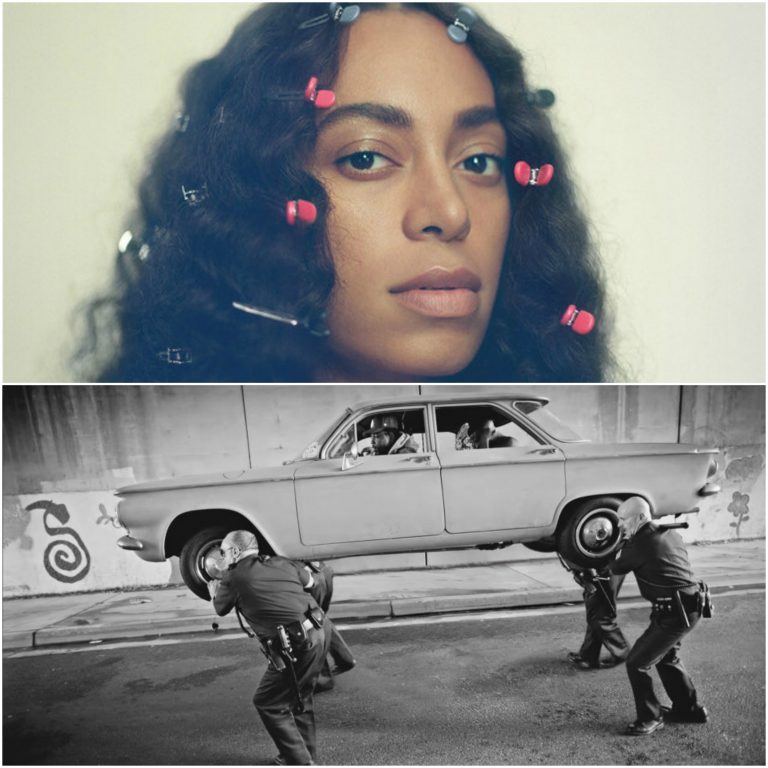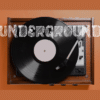2016 was a pretty wild ride, with several moments we’ll never forget, but not for want of trying. In the midst of these testing times which saw the lines between reality and tragicomedy blur quite alarmingly, we had some excellent music to seek solace in. In particular, moved by the circumstances which kickstarted the Black Lives Matter movement and the terrifying political climate in the US, several black artists released albums that saw them unapologetically and unashamedly embrace their black identity. In the face of a rising tide of hatred, artists like Beyoncé, her sister Solange and Childish Gambino have embraced the roots of R&B and hip-hop and have released albums which all proclaim, ‘I am black and standing proud, see me as I am’.
In these dark times, such albums are crucially vital. America’s racism-steeped history has meant that the struggles faced by black people have been present for years, but they have largely bubbled under the surface. But, the rise of Donald Trump and the increasing expression of extreme right-wing views into mainstream political discourse has seen an insidious undercurrent of racism come to the fore and rear its ugly head. Views that previously would have only been voiced in hushed whispers or in the backwoods of the US are increasingly being seen as acceptable, with Trump serving as the lurid, spray-tanned face of intolerance.
In these circumstances, many artists have decided to use their music to address these matters. While it can be hard to pinpoint exactly when this resurgence in these albums began, a significant turning point in mainstream music was the release of Kendrick Lamar’s, To Pimp A Butterfly. Whilst R&B maestro D’Angelo was so appalled with the state of affairs that he broke a 14 year hiatus to release the powerful Black Messiah a few months before Lamar’s album, it was TPAB which really ignited the powder keg that had previously been simmering.
Expertly exploring many different facets of black identity and with a rich musical palette stepped in funk, soul and jazz, TPAB was released in March 2015 after countless young black males lost their lives at the hands of US police. Frustrated and angry at the state of the world, at the time of its release, I remember describing TPAB as the album I didn’t know I needed in my life but couldn’t do without. Race-relations in the US were already on a knife-edge when it was released, but with more killings of black individuals, the Ferguson protests and the shooting of the members of Emanuel African Methodist Episcopal Church in Charleston to follow in the coming months, nobody could have predicted how much worse things would get.
A powerful and cathartic masterpiece, on listening to TPAB for the first time, I instantly knew I was listening to an important body of work that would have compelling impact; Lamar had perfectly captured the zeitgeist, acting as a mouthpiece for millions the world over. The album so brilliantly explores black struggles in a world that often attempts as ‘post-racial’, it’s no surprise that the song Alright was adopted as the anthem of the Black Lives Matters movement. With its refrain of ‘we g’on be alright’, the song offers a defiant message of hope, acting as a strong retort to the horrific circumstances which necessitated the song.
Solange’s A Seat At The Table serves as a 2016 counterpoint to TPAB, exploring what it’s like to be a black woman in America and detailing the struggles faced. However, it simultaneously exalts black people and ultimately offers an inspirational message that serves to empower black listeners. Albums by A Tribe Called Quest and Blood Orange (his album Freetown Sound was conspicuously absent from year-end lists despite being an incredible, sprawling epic. It requires a few listens and some patience to get into, but it is definitely worth it. Go listen to it right now if you haven’t) also touched on similar topics. With A Tribe Called Quest, their album is notable in that it was their first piece of music in nearly 20 years, and yet they still managed to sound as relevant as ever by taking aim at the numerous problems being faced by minorities.
It’s interesting to note that all the artists mentioned so far have embraced the throwback sounds of soul, blues and gospel, amongst others. With these sounds heavily rooted in black culture, it’s as if these artists are embracing their blackness, gaining inspiration from genres that are an integral part of black history and culture. Given the themes of self-belief and freedom in these works, it’s no surprise that inspiration has been sought from these genres. After all, soul is a genre which emerged from the expression of black pride, whilst blues has its roots in the emancipation of slaves.
With fear, intolerance and injustice being prevailing feelings in todays times, albums of this ilk are absolutely necessary, with black artists using their position to speak out and fight back. In these uncertain times, these records are encouraging black listeners to proudly accept the skin they’ve been born in and are helping to heal. Music brings people together and by spreading their message through their work, these artists, whilst lamenting the state of the world, are also giving comfort to black listeners. More than this, however, these albums also serve as a rallying cry to listeners.
As well as serving as a beacon of light in these dark times, the politically charged and often incendiary nature of these works makes them more than ‘just’ music. Rather, they are revolutionary political statements, with these artists boldly taking a stand. A common strand felt throughout all these albums is a sense of urgency, as if they’re serving as a call to arms. Rather than taking things lying down, these artists have instead been inspired to pour out their anger and frustration, in turn inspiring and empowering a generation of black listeners.
Parallels can be drawn with the emergence of punk music back in the 70s; punk music was borne out of working-class anger and a rejection of mainstream ideals. The fury being channelled into punk rock songs is analogous to the emotional rawness and anger being poured into all the aforementioned albums. These albums are rightly viewed as a modern day form of protest music. Though we live in an increasingly frightening world, we can only hope that intolerance and bigotry continues to be rebuked, with those in a position to speak out against it continuing to do so. Whilst it is not an artist’s responsibility to do so, given how powerful their voices can be, we can only hope that more artists follow this trend.
Author: Charles Olisanekwu


